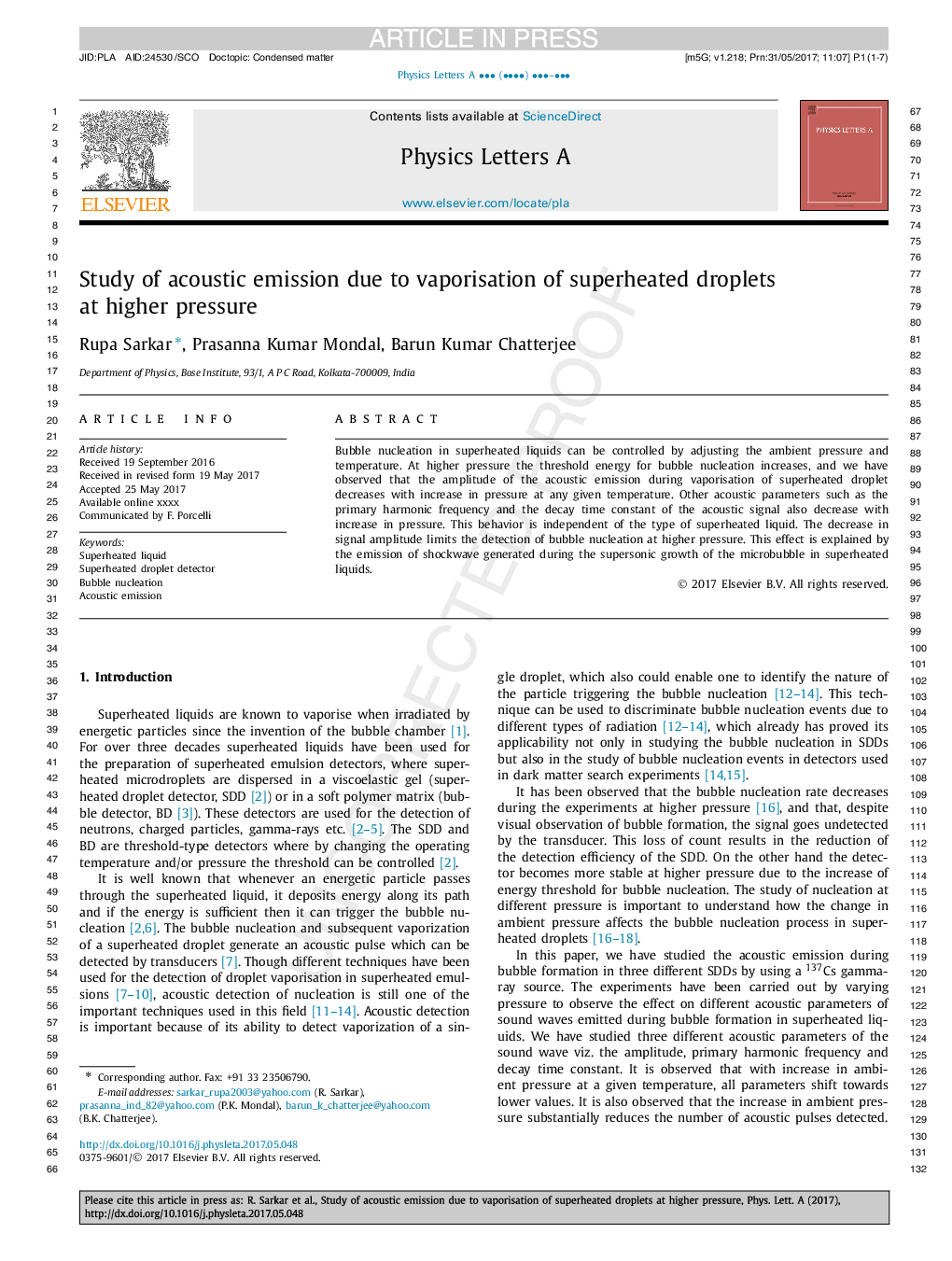| Article ID | Journal | Published Year | Pages | File Type |
|---|---|---|---|---|
| 5496208 | Physics Letters A | 2017 | 7 Pages |
Abstract
Bubble nucleation in superheated liquids can be controlled by adjusting the ambient pressure and temperature. At higher pressure the threshold energy for bubble nucleation increases, and we have observed that the amplitude of the acoustic emission during vaporisation of superheated droplet decreases with increase in pressure at any given temperature. Other acoustic parameters such as the primary harmonic frequency and the decay time constant of the acoustic signal also decrease with increase in pressure. This behavior is independent of the type of superheated liquid. The decrease in signal amplitude limits the detection of bubble nucleation at higher pressure. This effect is explained by the emission of shockwave generated during the supersonic growth of the microbubble in superheated liquids.
Related Topics
Physical Sciences and Engineering
Physics and Astronomy
Physics and Astronomy (General)
Authors
Rupa Sarkar, Prasanna Kumar Mondal, Barun Kumar Chatterjee,
